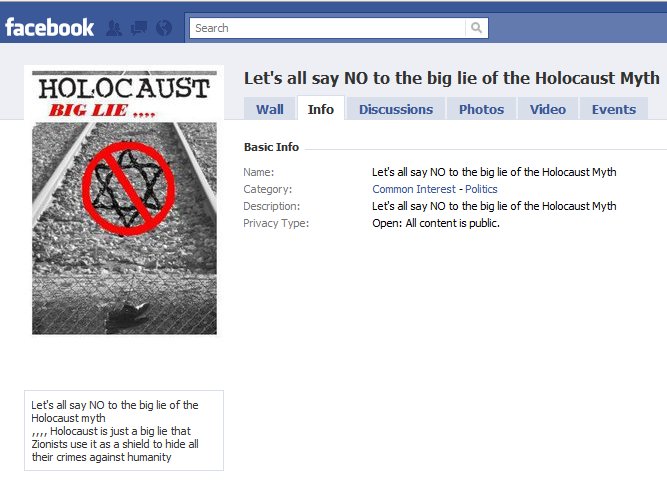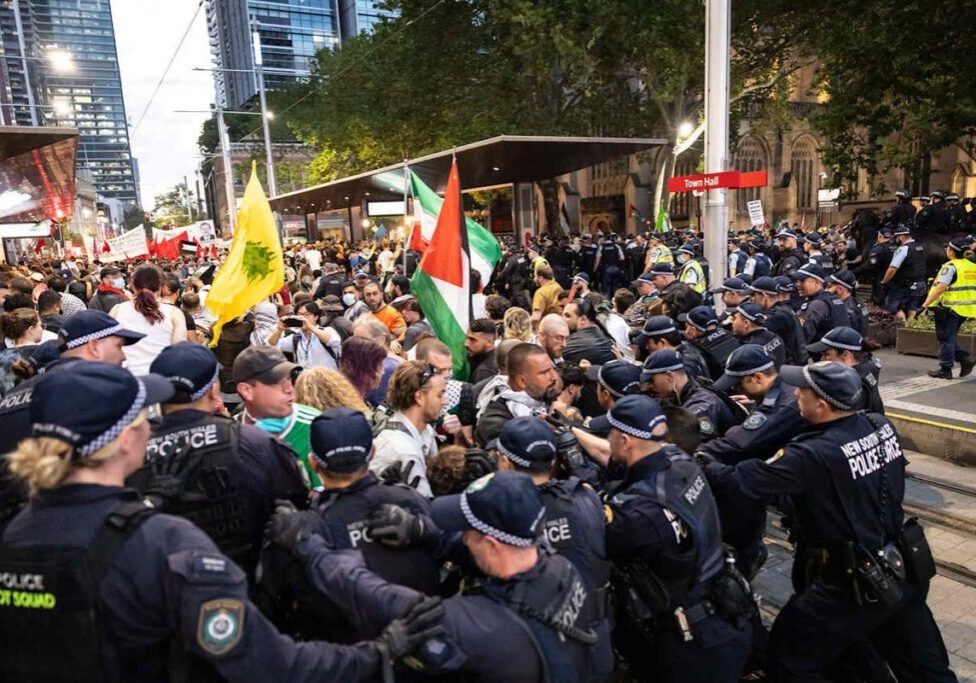Australia/Israel Review
Facebook heeds Holocaust message
Oct 30, 2020 | Naomi Levin

After significant global campaigns led by the World Jewish Congress and the American Jewish Committee and joined by dozens of key Jewish community organisations, including AIJAC, Facebook has agreed to crack down on Holocaust denial on its social media platforms.
In a statement on Oct. 12, Vice President of Content Policy Monika Bickert said Facebook would ban any content that “denies or distorts the Holocaust”. She added that, starting later this year, anyone who searches for terms associated with Holocaust or Holocaust denial will be directed to “credible information off Facebook”.
Facebook’s move against Holocaust denial followed its step earlier this year to prohibit users from using the ubiquitous digital platform to spread antisemitic stereotypes.
Content that accuses Jews of running the world or controlling the media is no longer permitted to be published on Facebook. This ban came after Jewish organisations consulted with Facebook in order to implore the social media giant to share some of the responsibility for growing global antisemitic sentiment.
In response to the Holocaust denial ban, Greg Schneider, president of the Claims Conference, whose mission is to provide a measure of justice to Holocaust survivors, welcomed the changes.
“You cannot deny the atrocities Holocaust survivors suffered; we applaud these first steps. Holocaust survivors bravely came forward to ensure that their voices were heard. We now urge Facebook to take immediate action to implement its new policy,” Schneider said.
However, Anti-Defamation League (ADL) CEO Jason Greenblatt accused Facebook of acting too late.
“In reality, we believe Facebook is acting now because of external pressure coming from a variety of sources: the Stop Hate for Profit campaign led by ADL and other civil rights organisations; the #NoDenyingIt effort led by the Claims Conference; alarming new polling on Holocaust awareness among young people; regulatory pressure in Europe and America; the recent congressional hearings in Washington DC and a hard-hitting letter from 20 state attorneys general,” Greenblatt said.
There was an obvious shift of emphasis by Facebook in October from unfettered free speech towards a more nuanced approach. This was reflected in the tech giant’s decision to remove content associated with increasingly popular conspiracy theory QAnon.
YouTube, owned by Google, announced it too would tighten the rules on QAnon-related content, which led to the removal of some popular, but dangerous, videos. However, although YouTube stopped short of an outright ban, analysts have noted that the majority of the most popular QAnon Facebook pages and groups became inaccessible quite quickly. Experts have warned, however, that QAnon is already morphing to evade capture, and some users are spilling over into less popular – and less regulated – alternative social media platforms.
QAnon – which originated in the US and is based on the crazy notion that Democrats and Hollywood elites are paedophilic child traffickers and that Donald Trump is working to #savethechildren – has spread beyond American shores and capitalised on the pandemic to pick up thousands of followers around the world.
QAnon has been associated with antisemitism, with researchers recently finding dozens of graphically violent death threats from QAnon supporters towards Jewish financier and philanthropist George Soros, many references to Rothschild banking conspiracies, and connections being drawn between the supposed child trafficking ring and the antisemitic canard of blood libel.
American researcher Gregory Stanton put it most succinctly: “QAnon’s conspiracy theory is a rebranded version of the Protocols of the Elders of Zion.”
With social media the new printing press, tech giants stepping up to the plate to remove hateful content seems central to restraining the spread of racist extremism – and the violence it can spawn.
Tags: Antisemitism, social media
RELATED ARTICLES

Antisemitism in Australia after the Bondi Massacre: Arsen Ostrovsky at the Sydney Institute





